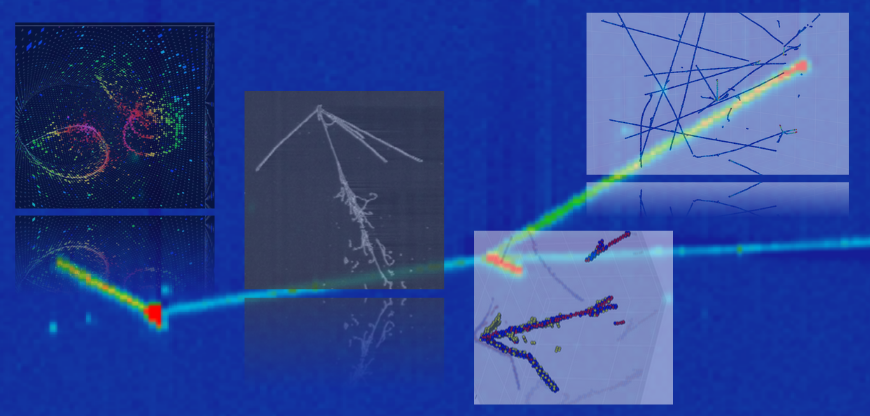Speaker
Description
"The observation of neutrinoless double-beta decay (0νββ) would demonstrate that the
Neutrino is Majorana in nature (its own antiparticle),establish the violation of lepton number conservation, and provide insight into the absolute neutrino mass scale. The NEXT experiment (Neutrino Experiment with a Xenon TPC) is searching for 0νββ decay in high-pressure xenon gas at the Laboratorio Subterráneo de Canfranc (LSC) in Spain. The NEXT-100 detector can hold ∼100kg of xenon at 15 bar and consists of a high-pressure time projection chamber (HPXeTPC) using an electroluminescence (EL) region for signal amplification. The energy and the spatial pattern of ionizing particles in the detector are accurately reconstructed using two sensor planes: the Energy Plane (EP), with photomultiplier tubes (PMTs), and the Tracking Plane (TP), equipped with silicon photomultipliers (SiPMs) that collect the signal from the amplification region. The performance of the TP depends on several operational parameters such as the diffusion of ionization electrons on its way to the anode, the separation between SiPMs (SiPMs pitch) and the operational pressure of the xenon gas.
This talk will focus on the use of a Sparse Convolutional Neural Network to study the TP
performance as a function of these operational parameters with the goal of identifying the
optimal event classification capabilities of NEXT-100 under different TP configurations and
gas mixtures."

